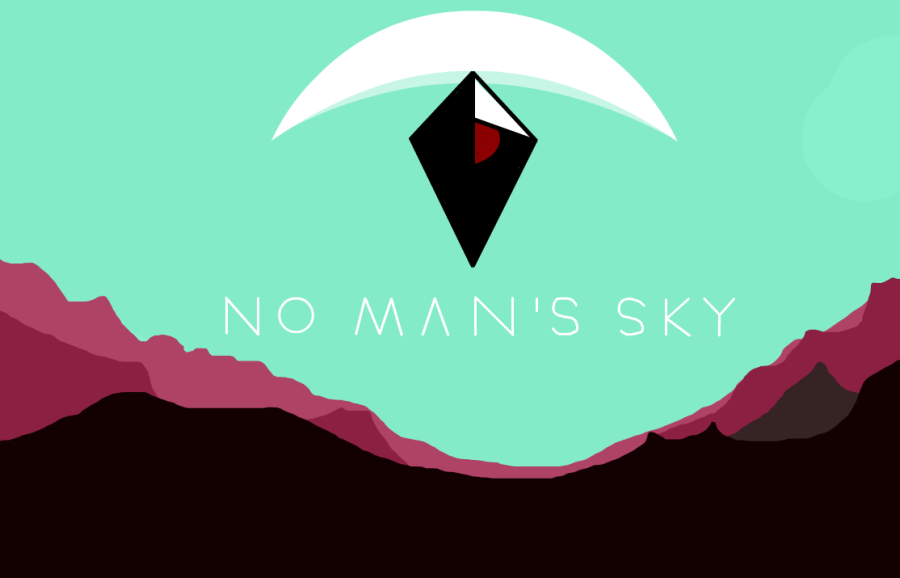You know what blows—and not in the good way? A video game developer who just cannot keep their word to their clients. We, the overly passionate, easily frustrated, and shockingly loyal global gamer population, have been repeatedly abused and misused by video game companies for decades. Sounds a lot like being in an unhealthy relationship with Taylor Swift, doesn’t it?
How many times have we heard video game executives announce via Twitter that “the release date of XYZ game has been pushed back four months” one day to being—usually with no explanation at all—stuck in development hell until the Second Coming of Christ the next? More than I care to count. When the action-adventure survival game “No Man’s Sky” was released for PS4 and PC in August of this year, it was expected to garner a boatload of critical acclaim and even more “Ben Franklins.”
Bullets in the form of words such as “repetitive” and “monotonous” were fired by a plethora of critics and chat forums—even Metacritic threw a little shade at “No Man’s Sky” with a measly review aggregation of 6/10. If 100 people eat the same meal and each one says it tastes like horse dung, then guess what? It tastes like horse dung. I believe that same philosophy should apply when five out of 15 major video game publications rank “No Man’s Sky” with a score of 6/10.
Now correct if I’m wrong, but a six does not sound like a grand slam to me. If anything, it is more like a Bill Buckner single at best. A lot of criticism was aimed at the limitations of what procedural generation can bring to a game. While the game engine can produce a vast array of different planets, it is built atop a finite number of predetermined assets (such as basic creature shapes or planetary biomes), and one quickly exhausts these core assets even with the variations allowed by procedural generation.
From having problems with their game code (programming), a lack of artists to produce more content or a quality of perceptual uniqueness, and overemphasis on the vastness of potential outcomes, which the “No Man’s Sky” marketing campaign relied heavily upon, drove me to the point of manic desperation.
Gamers need to realize something—small developers are humans, too, and they need to feed their families as well. Of course they are going to lie to you; I mean, it’s human nature. It is like our blood right to lie and try to con the next guy. Fair play and goodwill only exist in the Mighty Ducks movies—seriously, everyone knows that. Companies, especially ones as financially-strapped as small video game developer studios, are going to do whatever it takes to collect those beautiful Benjamins. And they should—they are, after all, a private enterprise geared, directed, and organized to do one essential function: make cash!
This a simple equation: a promise of a time-consuming game, plus a heavy marketing campaign, equals money, and a lot of it. Hello Games had the first part of the equation right, but pretty much took an axe to the whole thing after the game dropped last August. So how dark was the con of Hello Games actually? They were just doing what all for-profit companies do: turn a profit. But those of you who fell for the con should be revoked of your GameStop memberships for a year. Open your eyes and see the truth my friends.
The developer blunders a potentially lucrative game project due to overwhelming pressure from the publisher to finish a product before it is truly ready for release. Typically, developers tend to take their time when distributing their biggest game titles of the year onto store shelves nationwide. Imagine the speed of that endeavor when a publisher, in the spirit of Speedy Gonzalez, is screaming at developers, “Andale! Andale!” You can bet those games, created under those conditions, end up on store shelves faster than you can utter “Scrumdiddlelidlyumptious.” And you can also bet on those games being rife with a wide variety of glitches, missing content, and an unknowable amount of hours of game-play.
Gamers have long memories, and I can attest to this; I’m still pissed at BioWare for “Mass Effect II.” “No Man’s Sky” is a classic case of a video game being over-hyped by its creators to maximize sales projections and luring game addicts into committing the age-old “game to keep me busy during the fall school semester” impulse buy. “NHL 17” achieved that for me last September, so I understand.
The problem with “No Man’s Sky” is that it failed to do that for most of the people who invested in it. Whenever a developer rushes a game to market, everybody and their mother loses. I have no idea if Hello Games rushed “No Man’s Sky” to the market, but what is clear is that they flat-out lied about the quality of the product and released it to the public prematurely, knowing full well that it was not up to par. Whether they were cyber hacked or not makes no bit of difference to me, and it should not matter to you, him, her, them, or anyone else.
Because, like me, you are a glorious gamer; you were a proud button-mashing champion before “No Man’s Sky” happened to you, and now, you’re just a sad version of what you used to be. I, Endre James Joseph, honor your greatness and remember your sacrifice.
No Man’s Sky: The Con of Game Developers
November 3, 2016





















































